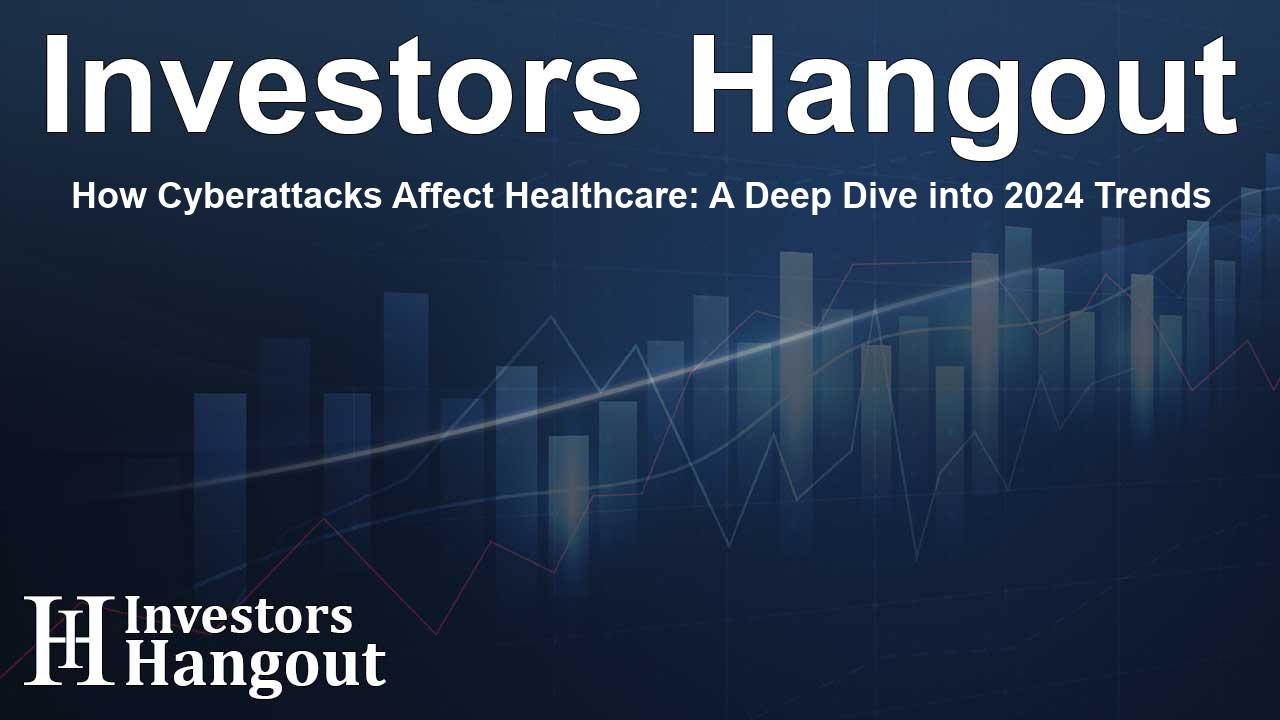How Cyberattacks Affect Healthcare: A Deep Dive into 2024 Trends

The Rising Cyber Threats in Healthcare
Recently, a shocking report highlighted that a substantial 84% of healthcare organizations detected cyberattacks on their systems within the past year. This alarming statistic underscores the digital security challenges faced by the healthcare sector, a trend echoed across various industries. The report, released by a notable vendor in cybersecurity, reveals insights from 1,309 IT and security professionals worldwide.
Common Cyberattack Trends
Types of Cyberattacks Encountered
Among the numerous types of cyberattacks, phishing emerged as the most prevalent threat affecting healthcare facilities—similar to patterns observed in other industries. Furthermore, when it comes to cloud-based attacks, 74% of organizations reported compromising incidents related to user or admin accounts. This shift highlights the pressing necessity for healthier cybersecurity practices.
Challenges Facing Healthcare Workers
Healthcare professionals often engage with numerous individuals, including patients, laboratory technicians, and external auditors. This situation complicates the process of verifying the legitimacy of messages, creating significant vulnerabilities. Dirk Schrader, VP of Security Research at the company, notes that the urgency of patient care often sidelines essential security training, further increasing the chances of security breaches.
Financial Impact of Cyberattacks
Financial damage resulting from these cyber incidents is a severe concern, affecting 69% of healthcare organizations, a figure considerably higher than the 60% seen in other sectors. The repercussions extend beyond immediate financial loss. Observations indicate that 21% of impacted organizations experienced shifts in senior management, with 19% facing legal actions after attacks. These figures underscore how deeply cyber threats can disrupt not only operations but also institutional confidence.
Impact on Leadership and Legal Ramifications
The sensitivity surrounding protected health information (PHI) frequently exacerbates the fallout from breaches. In a regulated environment like healthcare, organizations face substantial penalties for failing to safeguard such data. This pressure can often lead to significant leadership changes aimed at restoring stakeholder trust and addressing pressing security concerns.
Addressing the Threat
Steps to Mitigate Cybersecurity Risks
Healthcare organizations must take proactive measures to combat these cyber threats. Investing in cybersecurity awareness and training for staff, conducting regular security assessments, and implementing robust data protection protocols are crucial steps. These initiatives would not only fortify defenses but also foster a culture of security amongst employees.
Understanding unique vulnerabilities in healthcare and addressing them systematically can significantly improve the resilience of these organizations against potential threats.
About the Cybersecurity Vendor
The cybersecurity vendor leading this research advocates for a secure digital future for all organizations. Their innovative solutions offer safeguards for data and identities, reducing the risk and potential impact of breaches for over 13,500 organizations across more than 100 countries. Their mission empowers security professionals, enabling them to detect, respond to, and recover from cyber incidents effectively.
Frequently Asked Questions
What were the main findings of the cybersecurity report?
The report indicated that 84% of healthcare organizations detected cyberattacks in the past year, with phishing being the most common attack type.
How do cyberattacks financially impact healthcare organizations?
Cyberattacks resulted in financial damage for 69% of healthcare organizations, leading to significant operational disruptions and changes in leadership.
What type of cyberattacks are most common in healthcare?
Phishing attacks are prevalent, particularly on-premises, while cloud-based attacks often revolve around user or admin account compromise.
Why is cybersecurity training important for healthcare workers?
Cybersecurity training helps healthcare professionals understand risks and adopt practices that protect sensitive data, reducing the likelihood of security incidents.
What steps can healthcare organizations take to improve security?
They should invest in training, conduct regular security audits, and implement strong data protection protocols to enhance their cybersecurity posture.
About The Author
Contact Kelly Martin privately here. Or send an email with ATTN: Kelly Martin as the subject to contact@investorshangout.com.
About Investors Hangout
Investors Hangout is a leading online stock forum for financial discussion and learning, offering a wide range of free tools and resources. It draws in traders of all levels, who exchange market knowledge, investigate trading tactics, and keep an eye on industry developments in real time. Featuring financial articles, stock message boards, quotes, charts, company profiles, and live news updates. Through cooperative learning and a wealth of informational resources, it helps users from novices creating their first portfolios to experts honing their techniques. Join Investors Hangout today: https://investorshangout.com/
The content of this article is based on factual, publicly available information and does not represent legal, financial, or investment advice. Investors Hangout does not offer financial advice, and the author is not a licensed financial advisor. Consult a qualified advisor before making any financial or investment decisions based on this article. This article should not be considered advice to purchase, sell, or hold any securities or other investments. If any of the material provided here is inaccurate, please contact us for corrections.
